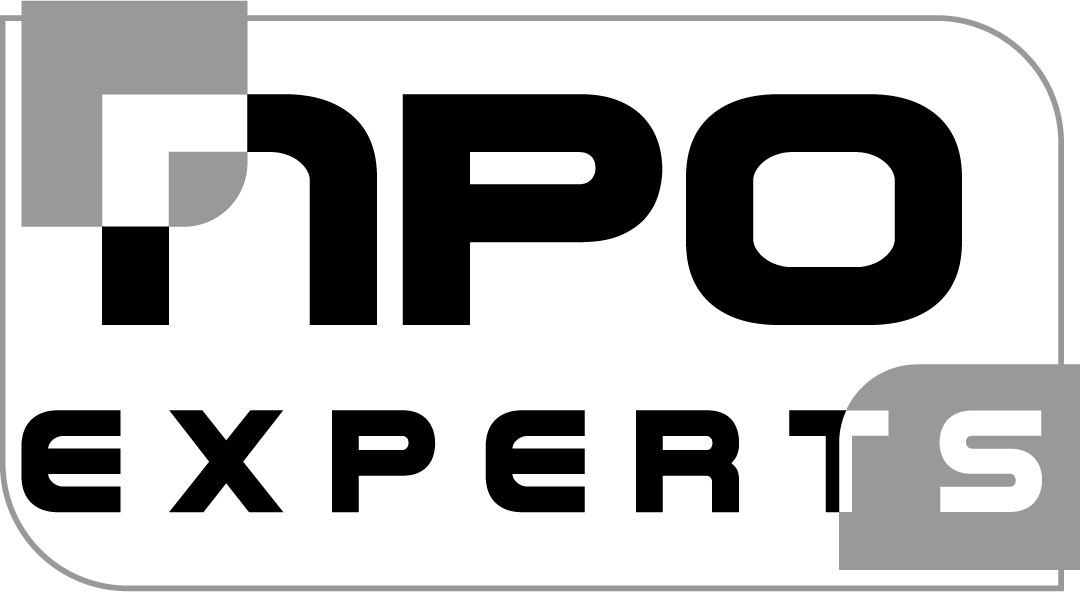For nonprofit organizations, securing consistent funding can be a daunting task, often relying heavily on successful donation drives and effective donation management systems. These systems play a crucial role in streamlining donor tracking and management, ultimately boosting fundraising efforts by fostering stronger relationships with existing donors and attracting new ones. By leveraging the right tools and strategies, nonprofits can maximize their potential for growth and success, making every dollar count towards achieving their mission.

What Are Donor Management Systems?
As a nonprofit organization, managing donations effectively is crucial for building strong relationships with supporters and achieving long-term success.
- A donor management system is a tool that enables nonprofits to collect, organize, and report on supporter data in one place.
- This centralized approach streamlines fundraising efforts, enhances communication strategies, and deepens donor relationships.
Key Features of Donor Management Systems:
- Data Management: Store and track donor information, including contact details, donation history, and interaction records.
- Fundraising Tools: Utilize features like online donation forms, event registration, and peer-to-peer fundraising campaigns to increase giving opportunities.
- Communication Management: Send targeted emails, mailings, and social media messages to engage donors and promote your cause.
- Reporting and Analytics: Generate insightful reports to measure campaign performance, identify trends, and inform future fundraising strategies.
Benefits of Implementing a Donor Management System:
- Improved Donor Engagement: Personalized interactions and timely communications foster stronger relationships and increased loyalty.
- Increased Efficiency: Automate tasks, reduce manual errors, and allocate more time to high-priority activities.
- Enhanced Data Insights: Accurate and up-to-date information informs informed decision-making and strategic planning.
- Better Fundraising Outcomes: Targeted approaches and data-driven strategies lead to increased revenue and sustained growth.
Popular Donor Management Software Options:
- NPO Expert offers a comprehensive review of top donor management software options, including features, pricing, and user reviews.
- Other notable solutions include Blackbaud Raiser’s Edge, Network for Good, and Qgiv.
Choosing the Right Donor Management System:
- Assess your organization’s unique needs and goals.
- Evaluate software features, pricing, and user reviews.
- Pilot test a solution before committing to a long-term partnership.
Recommended Donation Management Software
We understand the importance of effective donor management for nonprofits, which is why we’ve compiled a list of the top solutions available in 2025.
- Bloomerang: A popular choice among fundraising boards, Bloomerang offers an interactive dashboard to track ongoing fundraising activities, donor retention, and other crucial metrics.
- NPO Expert: As a dedicated resource for nonprofit organizations, our platform provides insights, tools, and strategies tailored to assist in nonprofit management, growth, and sustainability.
- Network for Good: This comprehensive donor management software helps nonprofits streamline their fundraising efforts, manage donations, and engage with supporters.
- Qgiv: Qgiv offers a robust online fundraising platform that includes features such as event registration, peer-to-peer fundraising, and donation tracking.
- Salesforce Nonprofit Success Pack: This powerful tool enables nonprofits to manage relationships, track interactions, and analyze data to inform fundraising strategies.
When selecting a donation management software, consider factors such as ease of use, customization options, integration capabilities, and customer support.
By choosing the right solution, nonprofits can optimize their donor engagement, increase fundraising efficiency, and ultimately drive greater impact.
For more information on nonprofit management and fundraising strategies, visit our website at https://npo-expert.com/ .
Additionally, explore our resources on fundraising and nonprofit management to learn more about best practices and industry trends.
Remember to always evaluate software options based on your organization’s unique needs and goals.

The Best Platform for Donations
We understand that choosing the right donation platform can be overwhelming, especially with numerous options available.
- NPO Expert recommends considering the following factors:
- Transaction fees
- Security features
- User interface and experience
- Integration capabilities
- Customer support
Top Donation Platforms
Based on our analysis, we have identified several top-notch platforms that cater to various needs:
- Network for Good
- Qgiv
- Classy
- Blackbaud
Key Features and Comparison
Each platform has its unique strengths and weaknesses. Here’s a brief comparison:
| Platform | Transaction Fees | Security Features | User Interface | Integration Capabilities | Customer Support |
|---|---|---|---|---|---|
| Network for Good | 2.9% + $0.30 per transaction | Level 1 PCI DSS compliant | User-friendly interface | Integrates with popular CRM systems | 24/7 customer support |
| Qgiv | 2.9% + $0.30 per transaction | PCI DSS Level 1 certified | Customizable interface | Integrates with popular event management software | Email and phone support |
| Classy | 2.9% + $0.30 per transaction | PCI DSS Level 1 compliant | Modern and intuitive interface | Integrates with popular social media platforms | 24/7 customer support |
| Blackbaud | Varies depending on the product | PCI DSS Level 1 certified | Customizable interface | Integrates with popular donor management software | Email and phone support |
Choosing the Right Platform
Ultimately, the best platform for donations depends on your organization’s specific needs and goals. Consider your budget, technical requirements, and user experience preferences when making your decision.
We recommend exploring each platform’s features and pricing plans to determine which one aligns best with your organization’s objectives.

Difference Between CRM and Donor Management System
A traditional Customer Relationship Management (CRM) system is designed to track interactions with customers throughout their lifecycles, uncovering valuable insights to inform marketing decisions.
- NPO Expert offers a dedicated resource for nonprofit organizations, covering topics like fundraising, nonprofit compliance, employee training, risk management, and community impact.
- Nonprofit donor management systems fulfill a similar role, but for constituents instead of customers, focusing on building relationships and tracking interactions with donors.
Main Differences Between CRM and Donor Management Systems
- Focus: CRM focuses on customers, while donor management systems concentrate on constituents and donors.
- Data Collection: CRM collects data on customer interactions, whereas donor management systems gather information on donations, events, and volunteer work.
- Goal-Oriented: CRM aims to drive sales and revenue, whereas donor management systems aim to foster long-term relationships and secure recurring donations.
- Integration: CRM often integrates with various departments, such as sales and marketing, whereas donor management systems typically integrate with development and fundraising teams.
Key Features of Donor Management Systems
- Donation tracking and reporting
- Event planning and registration
- Volunteer management
- Communication and engagement tools
- Reporting and analytics
Choosing the Right Donor Management System
When selecting a donor management system, consider factors such as scalability, customization options, integration capabilities, and user-friendliness.
Some popular donor management systems include Network for Good, Qgiv, and EveryAction, which offer a range of features and pricing plans to suit different nonprofit needs.
Ultimately, the right donor management system will depend on your organization’s unique requirements and goals.
Types of CRM Systems
We understand that choosing the right Customer Relationship Management (CRM) system can be overwhelming, especially with numerous options available.
- Operational CRM
- Collaborative CRM
- Analytical CRM
Also known as transactional CRM, this type focuses on automating sales, marketing, and customer service processes. Operational CRM helps streamline interactions between customers and businesses, making it easier to manage leads, track customer interactions, and analyze sales performance.
This type of CRM emphasizes collaboration among teams, departments, and partners to deliver exceptional customer experiences. Collaborative CRM enables real-time communication, shared knowledge, and coordinated efforts to meet customer needs effectively.
As its name suggests, analytical CRM involves analyzing customer data to gain valuable insights into behavior, preferences, and purchasing patterns. By leveraging these insights, businesses can develop targeted marketing campaigns, personalize customer interactions, and optimize sales strategies.
When selecting a CRM system, consider factors such as scalability, integration capabilities, user interface, and reporting features to ensure it aligns with your organization’s unique needs and goals.
By understanding the differences between operational, collaborative, and analytical CRM systems, you’ll be better equipped to choose the right solution for your business and drive long-term success.

What is a CRM for Nonprofits?
A CRM, or Customer Relationship Management tool, is software designed to help nonprofits effectively manage interactions with various stakeholders, including donors, program participants, board members, partners, and volunteers.
- Key Features of a CRM for Nonprofits
- Data Management: A CRM allows nonprofits to store and organize donor and stakeholder information in a centralized database.
- Contact Management: Nonprofits can track interactions, communication history, and preferences for each contact.
- Donation Tracking: CRMs enable nonprofits to monitor donations, pledges, and payment schedules.
- Volunteer Management: Nonprofits can schedule volunteer tasks, track hours worked, and communicate with volunteers.
- Reporting and Analytics: CRMs provide insights into donor behavior, giving patterns, and campaign effectiveness.
Some popular CRMs for nonprofits include:
- Salesforce: A leading CRM platform that offers customizable solutions for nonprofits.
- Blackbaud : A well-established provider of nonprofit software solutions, including CRMs and fundraising platforms.
- Network for Good : A nonprofit-focused CRM that offers features like online donation processing and email marketing.
When selecting a CRM for your nonprofit, consider factors like scalability, customization options, integration with existing systems, and cost-effectiveness.
Benefits of Implementing a CRM for Nonprofits
- Improved Donor Engagement: A CRM enables nonprofits to personalize interactions and tailor communications to individual donors.
- Increased Efficiency: Automating routine tasks and streamlining processes saves time and reduces administrative burdens.
- Enhanced Data Insights: CRMs provide valuable data and analytics, helping nonprofits make informed decisions and optimize fundraising strategies.
- Better Volunteer Management: A CRM facilitates effective volunteer engagement, scheduling, and recognition.
Conclusion
Implementing a CRM for your nonprofit can significantly enhance donor engagement, efficiency, and overall operations. By choosing the right CRM solution and leveraging its features, you can better manage relationships, streamline processes, and drive greater impact for your organization.

0 Comments